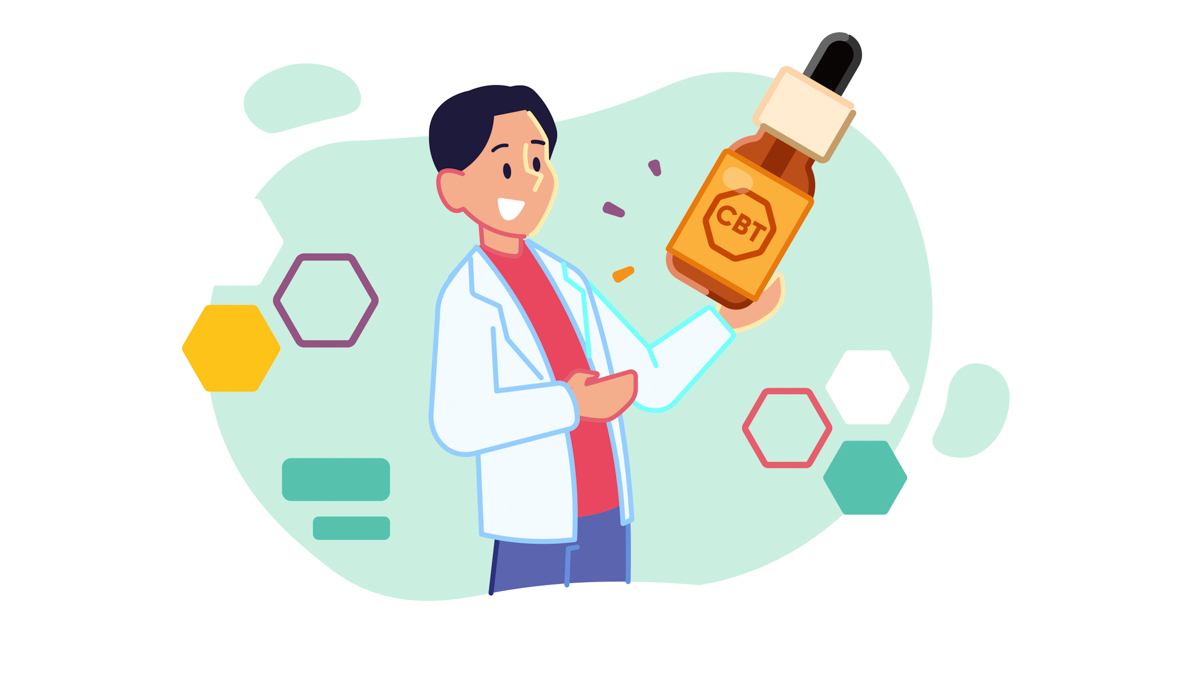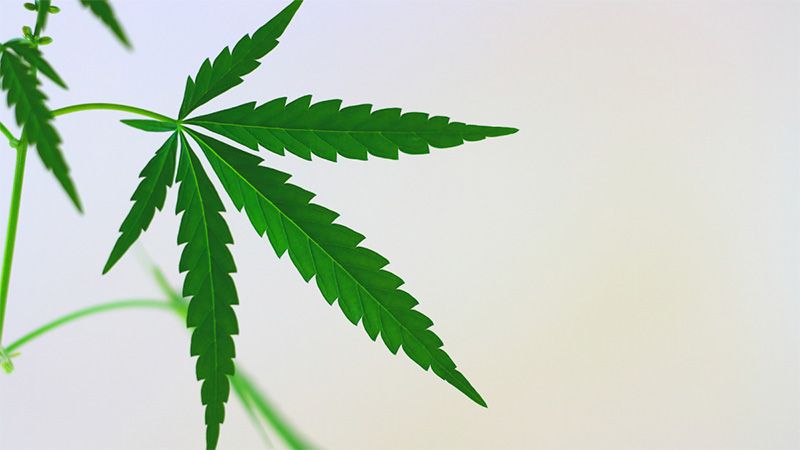What Is CBT (Cannabicitran) Cannabinoid?

This article focuses on CBT (cannabicitran), one of over 150 cannabinoids identified in cannabis plants. It’s a minor cannabinoid that can modulate the effect of the major cannabinoids alongside terpenes. After reading this guide, you’ll learn what CBT is and why you may want to add it to your routine once it gains more traction on the market.
There’s a reason why cannabis is called a plant of thousand and one molecules.
It’s a botanical powerhouse for hundreds of cannabinoids, terpenes, and flavonoids that influence its morphological and therapeutic qualities.
The boom in psychoactive cannabinoids from hemp, such as delta-8, delta-10, and THC-O, has also sparked the interest of the opposite spectrum.
It turns out that you can also extract non-psychoactive cannabinoids through the same isomerization process.
In this guide, we shed light on a newly discovered cannabinoid — cannabicitran (CBT).
You’ll learn about its effects, benefits, safety profile, and its place in the hemp industry.
CBT: A Rare Cannabinoid With Unique Health Benefits
Cannabicitran (CBT) is a naturally occurring — though rare — cannabinoid found in hemp. Its discovery dates back to 1974, when researchers primarily targeted CBN for its relaxing and sedating effects.
Recently, the industry has been working on developing a type of CBT product that will be a major breakthrough in the market by unlocking an even greater therapeutic potential of hemp extracts thanks to this promising cannabinoid.
CBT has a few subtypes, but what we know at the core is that it combines the benefits of CBD and CBG, and it’s also capable of inhibiting the psychotropic effects of THC.
On top of that, CBT is non-intoxicating and serves a modulatory role for the endocannabinoid system (ECS).
What Does Research Say About CBT?
Research into CBT is in its infancy; there are only a few reliable studies on this subject.
In 2011, a Japanese research team isolated a compound with a chemical structure almost identical to CBT. They used Chinese rhododendron as the source plant.
Rhododendron offers a wide range of health benefits, such as the prevention and treatment of conditions associated with the cardiovascular system, diarrhea, dysentery, inflammation, fever, constipation, and asthma.
The jury is still out to decide whether CBT comes with similar health benefits. More research is needed until CBT products will catch up with the scale of other cannabinoids.
Who Should Use CBT?
When CBT products become popular, they can be a fine addition to CBD and CBG supplementation as a part of the entourage effect. As mentioned, scientists suggest that CBT can unlock new therapeutic avenues for hemp extracts.
From a technical standpoint, CBT is used to prevent cannabis products, such as vapes, from crystalization. This can be a game changer because natural CBD vape liquids tend to crystallize, and many companies are using dangerous thinning agents such as MCT oil or vitamin E acetate.
High-quality manufacturers blend their vape distillates with terpenes to thin them down and provide additional benefits from the aromatic molecules.
CBT Effects

Unfortunately, most research regarding CBT’s effects has focused on its ability to prevent crystalization.
In one 2007 study on THC’s addictive properties, the authors found that CBT produces similar effects to CBD in its ability to curb the psychoactive effects of THC.
CBT Benefits
Besides its ability to suppress the addictive potential of THC, CBT exerts similar actions on the body and brain to CBD and CBT.
That’s just speculation, but CBT may possess potent antioxidative, anti-inflammatory, and neuroprotective properties.
A 1984 study investigated the effects of CBT on glaucoma as a non-intoxicating alternative to THC, suggesting that the cannabinoid may reduce pressure in the eye and protect nerves against damage.
Is CBT Safe?
There are currently no studies on the safety and side effects of CBT. However, considering its non-psychoactive nature and its potentially significant impact on the entourage effect, its safety profile is probably similar to other non-intoxicating cannabinoids.
Is CBT Legal?
CBT isn’t included in the federal Controlled Substances Act, nor does it appear under the UN Convention on Psychotropic Substances.
This makes CBT legal not only in the United States but also worldwide.
CBT vs. Other Non-intoxicating Cannabinoids
To further help you understand CBT’s role in cannabis, let’s compare it to other non-intoxicating cannabinoids.
CBT vs. CBD
CBT has a similar chemical structure to CBD. The two cannabinoids may work in tandem, with CBT enhancing the therapeutic potential of CBD.
CBT vs. CBG
CBT and CBG appear to have the same effect on the adrenergic system in the body. As a minor cannabinoid, CBT may amplify the energy-boosting and focus-enhancing properties of CBG.
CBT vs. CBL
We know very little about the effects of CBT and CBL. However, since they both come from CBC, they may share some similar properties. While CBT is formed through enzymatic processes, CBL occurs as a byproduct of CBC’s oxidation.
How Is CBT Different from THC?
The main difference between CBT and THC is that the former is non-intoxicating. You won’t get high from taking CBT, no matter how much you take.
In fact, CBT can counteract the psychotropic effects of THC by blocking the site of the receptor to which it tries to bind.
Related: What’s the Difference Between CBD and THC?
Where to Buy CBT Products
CBT products are a rarity right now. Manufacturers are trying to come up with an efficient extraction method, which will most likely lead to isomerization.
That’s the same conversion process that turns CBD into delta-8 THC, but it uses different chemicals as catalysts.
Once CBT becomes more popular, you’ll find it in cannabis dispensaries, specialized CBD stores, and online.
Key Takeaways on CBT Cannabinoid
CBT is yet to have its momentum, but scientists are already speculating that it can change the game for the potency of the entourage effect in cannabis.
It has a similar chemical formula to CBD and CBG, indicating the same effects and range of health benefits.
Research into the therapeutic effects of CBT is scant, but current findings leave no doubts: it’s a potent antioxidant with neuroprotective and anti-inflammatory properties.
Its antagonistic effects in relation to THC make it a decent alternative for people with glaucoma and those struggling with addiction to marijuana.
We’ll keep you updated once we spot the best CBT products in 2023.
Related Posts: